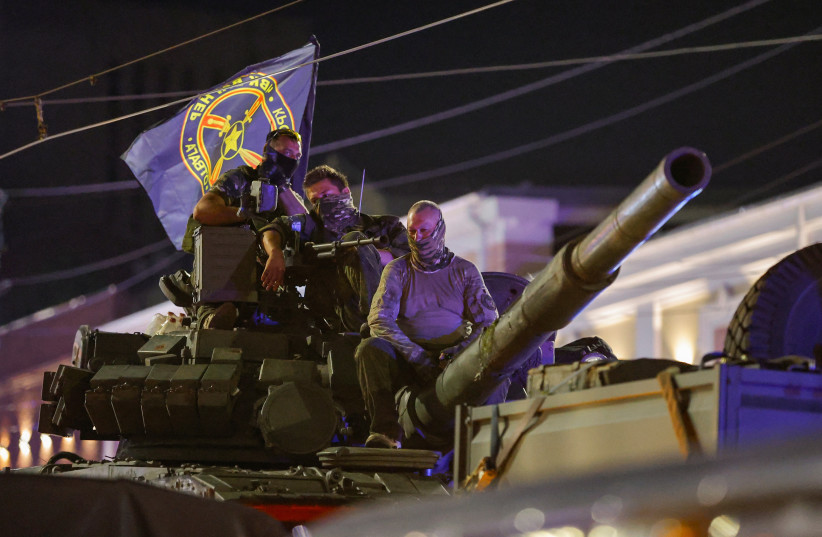The Wagner private military company is likely downsizing under financial pressure not long after its short-lived mutiny in June, the UK Defense Ministry said in a Sunday morning intelligence update.
"The Wagner Group is likely moving towards a down-sizing and reconfiguration process, largely to save on staff salary expenses at a time of financial pressure," said the UK Defense Ministry. "Since the abortive mutiny of June 2023, the Russian state has acted against some other business interests of Wagner owner Yevgeny Prigozhin. There is a realistic possibility that the Kremlin no longer funds the group."
In July, Reuters reported that Wagner head Yevgeny Prigozhin notified that the group would not be recruiting in the near term, but would do so in the future. Wagner said that some of his fighters had moved to other "power structures'' and as long as they didn't experience a personnel shortage, they wouldn't be recruiting.
Wagner presence in Ukraine
Wagner was estimated to have between 20,000-50,000 mercenaries fighting in Ukraine, fluctuating throughout the war. The PMC had recruited between 20,000-40,000 convicts from Russian prisons to serve for six months in return for pardons. This program was canceled around February, likely due to denial of access to prisons by the rival Russian Defense Ministry.
In March, Wagner had set up outreach teams in 40 locations across Russia and sent recruiters to high school. Reuters reported that Prigozhin said that the PMC was recruiting 500-800 people a day. He expected to have recruited 30,000 new mercenaries by mid-May.

Advertisements for contracts continued to circulate on Wagner-affiliated social media during these months. In February, the White House claimed that around 30,000 Wagner members were killed or injured during the conflict.
The Russian military groups seized Kremlin military bases and began to advance on Moscow on June 23, but stopped short in its march after a deal was struck through Belarus.
Ousting DM Shoigu
The limited revolt was focused on ousting Defense Minister Sergei Shoigu and other Russian brass, who Prigozhin said had failed the federation engaged in corruption.
Shoigu and Prigozhin had long been rivals, and the Wagner head had made public attacks against the defense minister, saying that he was denying ammunition to the mercenaries and claiming Wagner's victories as his own. While Wagner and mercenary groups enjoyed a great degree of autonomy, a decree was set to require them to sign contracts with the Defense Ministry by July 1.
Prigozhin and Wagner infrastructure were reportedly relocated to Belarus after an agreement was met.
"If the Russian state no longer pays Wagner, the second most plausible paymasters are the Belarusian authorities," the UK Defense Ministry said on Sunday. "However, the sizable force would be a significant and potentially unwelcome drain on modest Belarusian resources."
